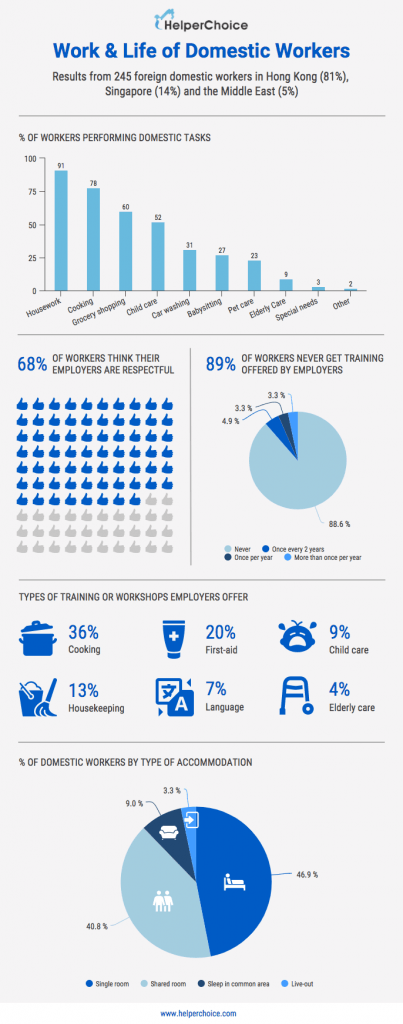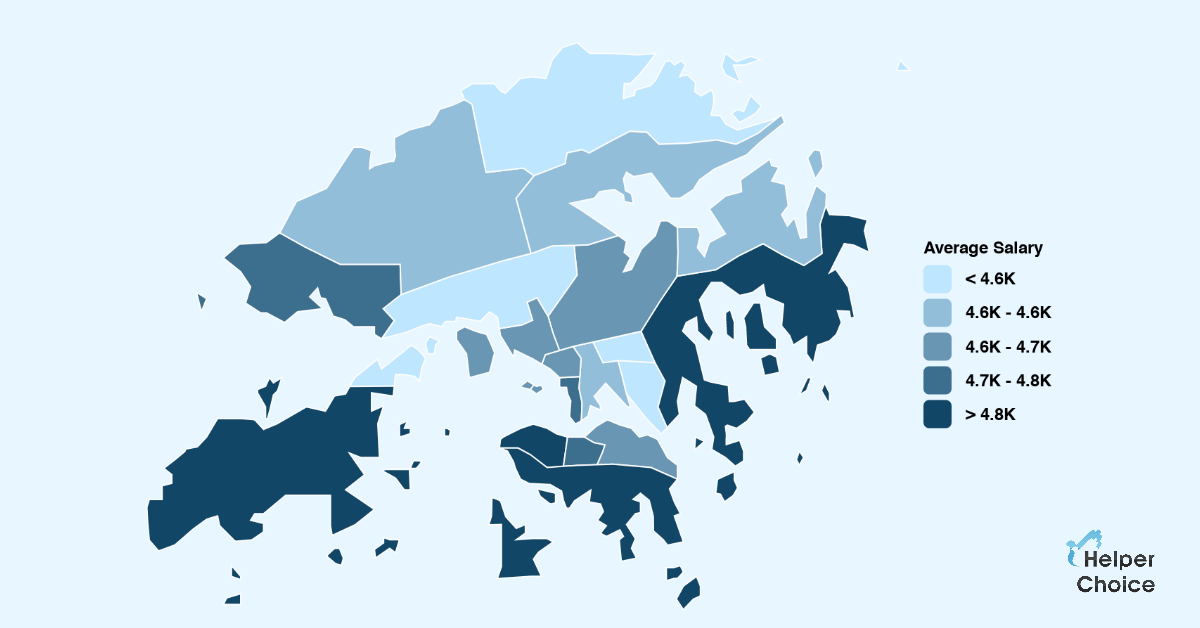HelperChoice, the leading platform connecting employers and domestic workers conducted a survey from October 9th until October 17th, 2017 in the Middle East, Hong Kong and Singapore to get more information about how domestic workers are living their lives. 245 domestic workers participated in the survey and the results are startling: 32% of the domestic workers feel that their employer is not respectful.
Domestic workers’ main duties are to do the housework (mentioned by 91% of the interviewees) and cooking (78%) but most of them are also taking care of children (52%) and newborn/toddlers (27%). Several domestic workers reported that they are ill-treated by the children, directly or indirectly: they lose credibility when their employer put into question their way of doing in front of the children and the later are taking advantage of this situation; some housemaids are admonished because of the children’s behaviours or are held responsible in case the children complain to their parents. Less than a quarter of the domestic workers are taking care of pets but bites from dogs are unfortunately quite common among pet sitters.

About 47% of the domestic workers can enjoy a single room but 9% reported that they have to sleep in common areas like the living room. About 41% have to share the room with another helper or with a member of the family (baby, elderly person…). As a result, several interviewed helpers mentioned that that really suffer from the lack of privacy, and even with their own room the employers are sometimes requiring them to let the door unlocked so that they can enter when they wish.
32% of the interviewees think that their employer is not respectful. They mention different reasons but a lot of them were hurt because they were shouted and yelled at, often in public spaces. Others reported that their employers asked them to work very long hours and even asked additional household chores for friends or relatives (like going to the grocery for 3 families, washing the car of the grandmother who is visiting or even washing clothes of relatives while they are having dinner).
Moreover, one of the striking findings of this survey is the important number of domestic workers who are suffering from not having enough food or bad-quality food: 10% of the helpers say that they are hungry because of the quantity they were allowed to eat. Two helpers reported a big decrease in their weight, one going from 60kg to 47kg in 6 months and another from 56kg to 37kg in one year. Others reported that they were only allowed to eat the leftovers or they have to eat expired food.
When asked to tell us their best or worst memories, 61% of the domestic workers chose to discuss their worst memories against 12% their best one. It comes out that their best memory is most of the time when their employer considers her as a member of the family, giving her compliments about the way they cook or when they get recognition of the hard work that is done. On the contrary, the worst memories are often related to their employers scolding them or threatening them (to break their contract, to discard their personal belongings, to make them pay for an item etc.).
Last but not least, the survey shows that very few employers are concerned about the upskilling of their domestic workers: 89% of the helpers never got any training apart from the one received in their home country (if any), while 7% are trained once a year or more. Over 11% of the trained helpers, 36% attend cooking classes and 20% participate in first-aid training. Some also reported training in child care or elderly care, training to learn a foreign language, do the housekeeping… but also in music classes!
About HelperChoice:
HelperChoice is an ethical online platform that helps employers find the domestic workers that match their needs and give information about how to hire and manage domestic workers.





